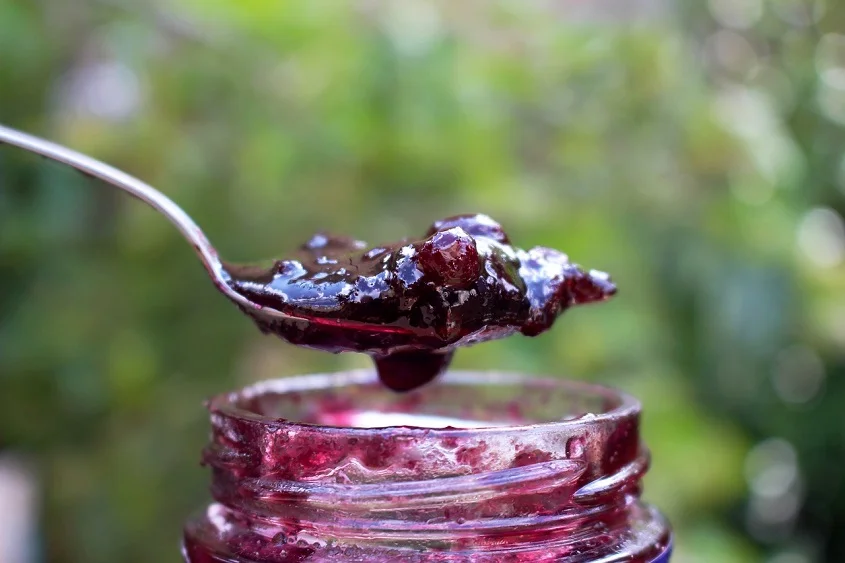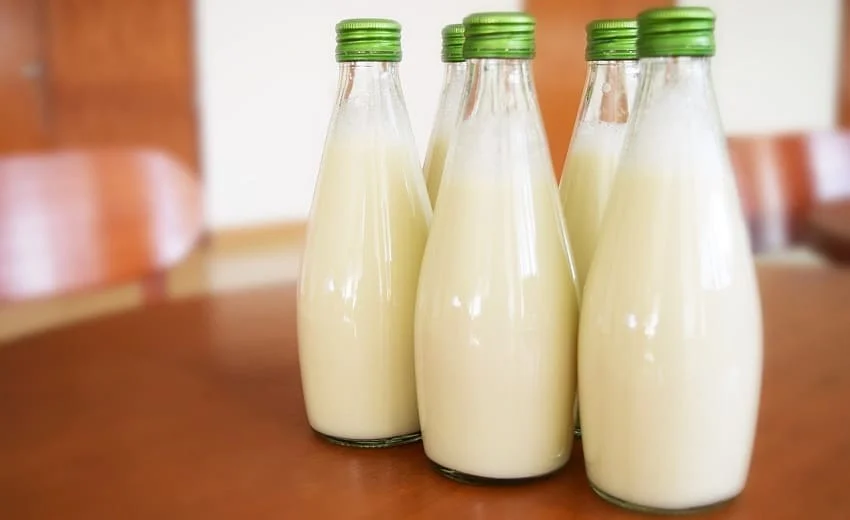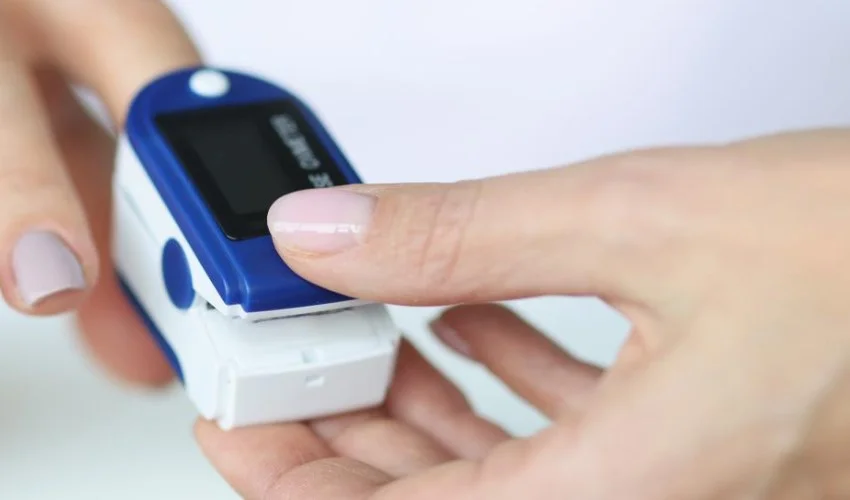What is Gulkand?
Gulkand is a traditional Indian sweet preserve made from rose petals. It is commonly used in Ayurvedic medicine for its various health benefits. Gulkand is known for its cooling properties and is often consumed during the summer months to beat the heat. It is believed to have a calming effect on the body and mind, making it a popular choice for stress relief. Additionally, Gulkand is said to improve digestion and promote a healthy gut. However, when it comes to diabetic patients, caution should be exercised as Gulkand contains sugar. It is important for diabetic patients to monitor their sugar intake and consult with their healthcare provider before consuming Gulkand.
Nutritional Composition of Gulkand
Gulkand, a traditional Indian sweet made from rose petals, has a rich nutritional composition that makes it a beneficial addition to the diet of diabetic patients. It contains vitamins A, C, and E, which are known for their antioxidant properties and can help in reducing oxidative stress. Gulkand also contains minerals like calcium, iron, and potassium, which are essential for maintaining overall health. Additionally, it is a good source of fiber, which aids in digestion and helps in regulating blood sugar levels. The natural sugars present in Gulkand are slowly released into the bloodstream, preventing sudden spikes in blood sugar levels. Therefore, incorporating Gulkand into the diet of diabetic patients can provide them with essential nutrients while helping to manage their blood sugar levels effectively.
Benefits of Gulkand
Gulkand, a sweet preserve made from rose petals, has several benefits for diabetic patients. Firstly, it has a low glycemic index, which means it does not cause a rapid increase in blood sugar levels. This makes it a suitable sweetener for those with diabetes. Additionally, gulkand is rich in antioxidants that help reduce oxidative stress in the body, which is beneficial for diabetic patients as they are more prone to developing complications related to oxidative stress. Moreover, gulkand has anti-inflammatory properties that can help reduce inflammation in the body, which is often seen in diabetic patients. Overall, incorporating gulkand into the diet of diabetic patients can provide them with the benefits of a natural sweetener with added health benefits.
Understanding Diabetes
What is Diabetes?
Diabetes is a chronic condition that affects the way the body metabolizes sugar. It occurs when the pancreas does not produce enough insulin or when the body cannot effectively use the insulin it produces. Insulin is a hormone that regulates blood sugar levels and allows cells to use glucose for energy. There are different types of diabetes, including type 1, type 2, and gestational diabetes. Managing diabetes involves maintaining a healthy diet, regular exercise, monitoring blood sugar levels, and taking medication as prescribed. It is important for diabetic patients to be cautious about their sugar intake and choose foods that have a low glycemic index. Now, let’s explore whether Gulkand, a traditional Indian sweet made from rose petals, is good for diabetic patients.
Types of Diabetes
There are three main types of diabetes: type 1, type 2, and gestational diabetes. Type 1 diabetes occurs when the body does not produce enough insulin, a hormone that helps regulate blood sugar levels. Type 2 diabetes is the most common type and occurs when the body does not use insulin properly. Gestational diabetes occurs during pregnancy and usually goes away after the baby is born. Each type of diabetes requires different management strategies and treatment plans.
Effects of Diabetes on the Body
Diabetes is a chronic condition that affects the body’s ability to regulate blood sugar levels. When left uncontrolled, diabetes can have serious effects on various organs and systems in the body. One of the most common complications of diabetes is damage to the blood vessels, which can lead to heart disease, stroke, and other cardiovascular problems. Diabetes can also affect the kidneys, resulting in kidney disease or even kidney failure. Additionally, diabetes can cause nerve damage, known as neuropathy, which can lead to pain, numbness, and tingling in the hands and feet. It can also affect the eyes, increasing the risk of vision problems and blindness. Therefore, it is crucial for diabetic patients to manage their condition carefully and seek appropriate medical care to prevent or minimize these potential effects on the body.
Gulkand and Diabetes
Can Diabetic Patients Consume Gulkand?
Yes, diabetic patients can consume gulkand in moderation. Gulkand is made from rose petals and sugar, and it is believed to have several health benefits. While it does contain sugar, the amount consumed in gulkand is usually small and can be easily managed by diabetic patients. Additionally, gulkand is rich in antioxidants and has anti-inflammatory properties, which can be beneficial for diabetic patients. However, it is important for diabetic patients to monitor their blood sugar levels and consult with their healthcare provider before adding gulkand to their diet.
Impact of Gulkand on Blood Sugar Levels
Gulkand, a traditional Indian sweet preserve made from rose petals, has been consumed for centuries for its various health benefits. However, when it comes to diabetic patients, the impact of Gulkand on blood sugar levels needs to be carefully considered. While Gulkand is naturally sweet and contains sugar, it also has a low glycemic index, which means it is absorbed slowly by the body and does not cause a sudden spike in blood sugar levels. Additionally, Gulkand is rich in antioxidants and has anti-inflammatory properties, which can be beneficial for diabetic patients. However, it is important for diabetic patients to consume Gulkand in moderation and under the guidance of a healthcare professional to ensure it does not negatively affect their blood sugar control. Overall, the impact of Gulkand on blood sugar levels in diabetic patients can vary depending on individual factors, and it is advisable to consult a healthcare professional before incorporating it into their diet.
Gulkand as a Natural Sweetener for Diabetics
Gulkand, a sweet preserve made from rose petals, has been used in traditional Ayurvedic medicine for centuries. It is believed to have several health benefits, including its potential as a natural sweetener for diabetics. Unlike refined sugar, gulkand has a low glycemic index, which means it does not cause a rapid spike in blood sugar levels. This makes it a suitable alternative for diabetic patients who need to monitor their blood sugar levels. Additionally, gulkand contains antioxidants and anti-inflammatory properties that may help improve insulin sensitivity and reduce the risk of complications associated with diabetes. However, it is important to consume gulkand in moderation and consult with a healthcare professional before incorporating it into a diabetic diet.
Gulkand and Insulin Resistance
Insulin Resistance and Diabetes
Insulin resistance is a common condition that occurs when the body’s cells do not respond properly to insulin. This can lead to high blood sugar levels and eventually develop into type 2 diabetes. For diabetic patients, managing insulin resistance is crucial to maintain stable blood sugar levels. One natural remedy that has gained popularity is gulkand. Gulkand, a sweet preserve made from rose petals, is believed to have various health benefits, including its potential to improve insulin sensitivity. However, it is important for diabetic patients to consume gulkand in moderation and under the guidance of a healthcare professional, as it still contains sugar. It is always advisable for diabetic patients to follow a balanced diet and exercise regularly to manage their condition effectively.
Role of Gulkand in Managing Insulin Resistance
Gulkand, a sweet preserve made from rose petals, has been traditionally used in Ayurvedic medicine for its numerous health benefits. One of the key roles of Gulkand is its potential in managing insulin resistance, a condition commonly associated with diabetes. Insulin resistance occurs when the body’s cells become less responsive to the hormone insulin, leading to high blood sugar levels. Studies have shown that Gulkand may help improve insulin sensitivity and regulate blood sugar levels, making it beneficial for diabetic patients. Additionally, Gulkand is rich in antioxidants that can protect the body against oxidative stress and inflammation, both of which are linked to insulin resistance. Incorporating Gulkand into the diet of diabetic patients may provide them with a natural and delicious way to support their overall health and manage their condition.
Studies on Gulkand and Insulin Resistance
Gulkand, a traditional Indian sweet preserve made from rose petals, has been the subject of several studies investigating its effects on insulin resistance. Insulin resistance is a condition in which the body’s cells become less responsive to the hormone insulin, leading to elevated blood sugar levels. In a study published in the Journal of Ethnopharmacology, researchers found that Gulkand supplementation improved insulin sensitivity in diabetic patients. Another study published in the International Journal of Food Sciences and Nutrition reported similar findings, suggesting that Gulkand may have potential as a natural remedy for managing insulin resistance in diabetic patients. These studies highlight the potential benefits of Gulkand in improving insulin sensitivity and managing diabetes. However, further research is needed to fully understand its mechanisms of action and determine the optimal dosage for therapeutic use.
Other Health Benefits of Gulkand
Digestive Health
Gulkand, a sweet preserve made from rose petals, is often praised for its various health benefits. While it is commonly known for its cooling properties and its ability to improve skin health, it can also have positive effects on digestive health. Gulkand is believed to have a soothing effect on the stomach and can help alleviate digestive issues such as acidity, indigestion, and constipation. It is also known to improve appetite and promote healthy digestion. However, for diabetic patients, it is important to consume gulkand in moderation due to its high sugar content. Consulting a healthcare professional is advisable before including gulkand in the diet of diabetic patients.
Skin Health
Gulkand, a sweet preserve made from rose petals, is not only delicious but also beneficial for diabetic patients. However, when it comes to skin health, Gulkand is a true powerhouse. It is packed with antioxidants that help in reducing skin inflammation and promoting a healthy complexion. The natural cooling properties of Gulkand also soothe irritated skin and provide relief from sunburn. Additionally, the vitamins and minerals present in Gulkand nourish the skin, making it look radiant and youthful. Incorporating Gulkand into your skincare routine can help improve the overall health and appearance of your skin.
Stress Relief
Stress relief is crucial for maintaining a healthy lifestyle, especially for diabetic patients. One effective way to achieve stress relief is by incorporating gulkand into your daily routine. Gulkand, a traditional Indian preparation made from rose petals, is known for its calming properties. It helps to reduce anxiety and promote a sense of relaxation. Additionally, gulkand is rich in antioxidants, which can help to combat the harmful effects of stress on the body. By including gulkand in your diet, you can not only enjoy its delicious taste but also benefit from its stress-relieving properties, making it a great choice for diabetic patients.
Summary of Findings
In summary, the findings suggest that Gulkand, a traditional Indian sweet made from rose petals, may have potential benefits for diabetic patients. Studies have shown that Gulkand can help regulate blood sugar levels and improve insulin sensitivity. Additionally, it contains antioxidants that can protect against oxidative stress and inflammation, which are common complications of diabetes. However, it is important for diabetic patients to consume Gulkand in moderation and consult with their healthcare provider before including it in their diet. Further research is needed to fully understand the effects of Gulkand on diabetes management.
Recommendations for Diabetic Patients
For diabetic patients, it is important to be cautious about the foods they consume. While gulkand is known for its numerous health benefits, it is not recommended for diabetic patients. Gulkand is made from rose petals and sugar, which can significantly increase blood sugar levels. Therefore, it is advisable for diabetic patients to avoid consuming gulkand as it can have a negative impact on their blood sugar control. Instead, they should focus on incorporating a balanced diet that includes low glycemic index foods and consult with their healthcare provider for personalized dietary recommendations.
Further Research and Considerations
Further research and considerations are necessary when evaluating the potential benefits of Gulkand for diabetic patients. While some studies suggest that Gulkand may have positive effects on blood sugar levels and insulin sensitivity, more research is needed to fully understand its impact on diabetes management. Additionally, it is important to consider individual factors such as medication use, diet, and lifestyle when determining the suitability of Gulkand for diabetic patients. Consulting with a healthcare professional is recommended before incorporating Gulkand into a diabetic patient’s treatment plan.




